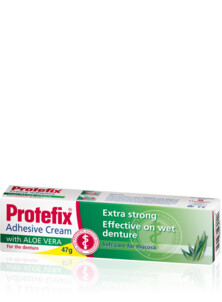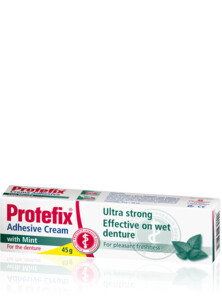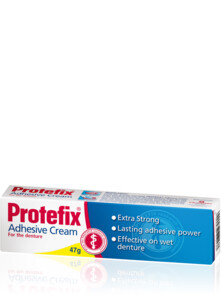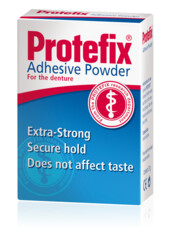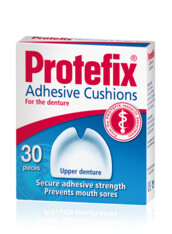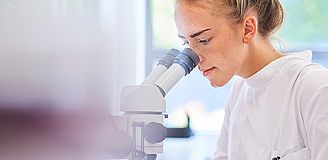
Regular and thorough cleaning is also necessary for your “false teeth” - although they won’t suffer from decay! Caring for and maintaining your dentures contributes to them remaining intact and appealing looking over the long term. Your remaining teeth and oral mucosa can also suffer from the insufficient care and maintenance of your dentures, as tartar and food remnants form the ideal breeding ground for bacteria.
Here are some useful tips so that you can use your removable dentures without experiencing any problems for as long as possible!

Dental tartar and calculus when wearing dentures
Generally, you should clean your dentures thoroughly each day. Soft dental tartar can arise on both your remaining teeth and your artificial teeth, which results in the formation of dental calculus. Once the dental calculus has formed and hardened, it is almost impossible to remove with a toothbrush. It is usually necessary for your dentist to carry out sophisticated cleaning work. If the dentures are not sufficiently cleaned, both the individual connecting elements which are adjusted down to the last millimetre and the contact surfaces can be damaged by the dental calculus. It isn’t just the dentures themselves that can cause problems, however; hidden food remnants can cause bad breath or gum infections.
Tips on the cleaning and care of your dentures
If at all possible, get used to rinsing your dentures under running water, ideally after each meal. During such work, to prevent your dentures from suffering any undue damage, only hold onto the stable metal and plastic parts.
You should also clean your dentures thoroughly once a day with a toothbrush. For this purpose, you can either use a conventional toothbrush, or ideally, a toothbrush that has been designed especially for dentures. These have firmer brushes, and with their special design they make cleaning hard-to-access areas easier.
It is also recommended that you use specialist toothpaste for dentures. Denture toothpastes contain fewer grinding particles than conventional toothpastes and therefore go easy on the surface of the dentures. Alternatively, you can also use a mild detergent to clean your dentures.
If you use an adhesive toothpaste, and residues have become attached to the dentures that you aren't able to remove with a toothbrush and water, they can be removed with a cloth that has been soaked in vegetable oil.

Dentures cleaning sequence:
- Ideally, place a soft cloth in the basin so that if you drop the dentures in error, they won't get damaged. Next, rinse the dentures in the basin under running water.
- Next, brush the dentures under water using a conventional toothbrush or a special dentures toothbrush.
- Next, clean the dentures using specialist cleansing cream for dentures or a mild detergent. Alternatively, you can also use a denture cleaning tab to clean your dentures; if so, please follow the instructions carefully. Some denture cleaning tabs also have a disinfectant effect - although if used incorrectly, they can also cause damage to the surface of the dentures.
- Finally, it is necessary to rinse the dentures thoroughly under running water.
Even if you clean your dentures thoroughly each day, dentists still recommend regular professional cleaning by the dental practice team or in a technical dental laboratory. That will rectify any possible damage and subject the dentures to thorough cleaning. In this respect, the dentures will be relieved of plaque, dental calculus and colouration before finally being polished to achieve a surface that is as smooth as possible.
Professional cleaning is an additional service, however, for which private payment is necessary.
